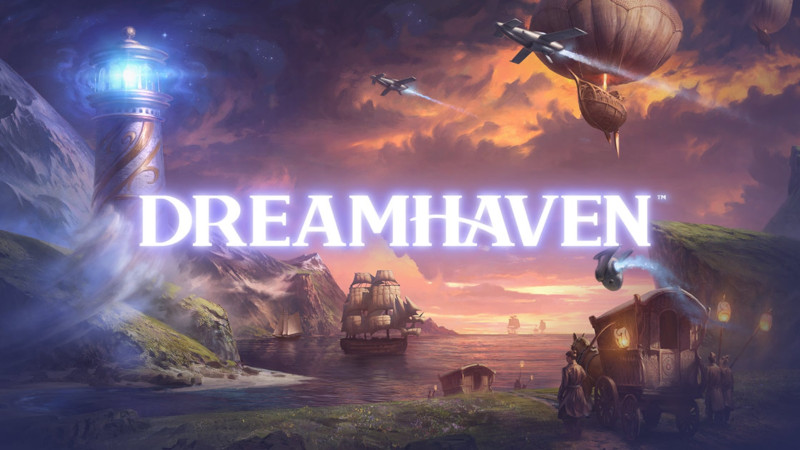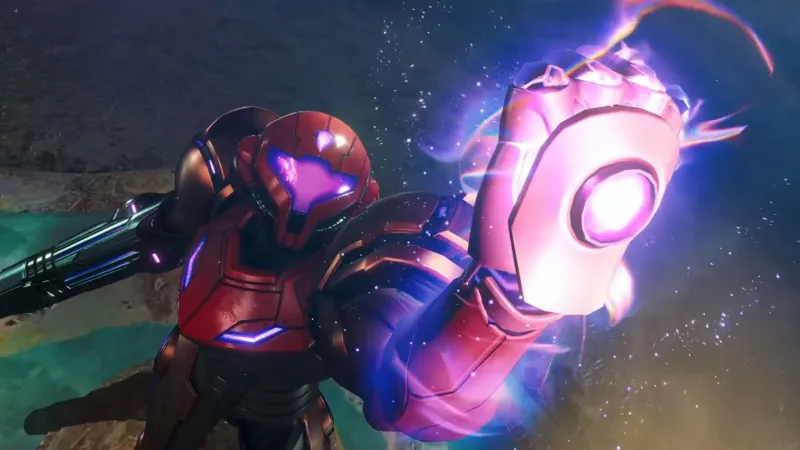After primarily focusing on the Persona franchise for the last two decades, director Katsura Hashino and his team decided to craft an all-new IP that retains many of the core tenets of their most well-known work. Though Metaphor: ReFantazio’s fantasy backdrop differs vastly from Persona’s real world, the adventure feels familiar not only in gameplay and structure but also in the struggles characters face within their world. The relatable themes combined with a standout cast and the best gameplay this team has yet created make for an enthralling narrative-driven turn-based RPG that kept me hooked for more than 100 hours.
The king of Euchronia is assassinated and his heir is comatose under a curse. With the prince unable to take the throne and succeed his father, a Royal Tournament is organized to allow the kingdom’s denizens to choose a new ruler. Dangerous, grotesque beasts known as Humans have also become more common, creating a sense of unrest that allows for the charismatic Human hunter Louis Guiabern to rise in popularity to challenge religious leader Santifex Forden in the polls. This election serves as the backdrop to a sprawling story that includes terrific explorations on themes of both individualized and collective anxiety and the impact that can have on us. I loved traveling through the kingdom, learning how the uncertain state of the nation was impacting the various species, and demonstrating to the citizens that my character was worthy of their support.
Closely following the Persona formula, Metaphor puts you in control of a protagonist as he navigates his day-to-day life throughout a lengthy narrative consisting of several arcs en route to rescue the prince and restore the kingdom’s political order. Operating on the development team’s signature calendar system, you must choose what to do during your daytime and evening hours. Since Metaphor features such an excellent and diverse cast of characters, I often struggled to decide which of my connections I wanted to spend my finite time with. You must also consider using your time to complete quests or improve the protagonist’s attributes that open additional dialogue options.
The substories connected to the protagonist’s followers, whether they’re party members or other NPCs integral to the story, are among the highlights of the Metaphor experience. Whether I was assisting one character in finding a home for his people following a Human attack on his village or accompanying another as he comes to terms with the death of his son, Metaphor gives you a keen glimpse into the struggles of each character, providing depth and believability to most members of the terrific cast. And just like Persona, deepening your connection with a character unlocks bonuses within the combat system, providing additional incentives to play through these often excellent scenes.
As you travel through Euchronia and progress the story, you delve into countless dungeons and face off against horrific monsters in fast-paced, turned-based combat. On each character’s turn, you can perform a melee attack, use items, or perform magic moves using Archetypes, character-specific entities based on different imagined depictions of heroism. As you create new relationships with characters, you unlock additional Archetypes that can be studied by the party members.
The Archetypes serve as Metaphor’s job system, allowing you to equip different classes to the characters. Though some characters are clearly built to use specific Archetypes, if you want to assign your warrior character to be a mage and your tank to be a healer, Metaphor does little to stand in your way. And with a skill inheritance system that lets you import abilities from other Archetypes into your character’s current build, I excitedly spent hours theorycrafting not only my team composition but each of their individual ability suites.
Finding the sweet spot for your team’s abilities is crucial. Landing a critical hit or attacking an enemy’s weakness grants additional turn icons, while ill-advised attacks or outright misses take away turns and can turn the tide of battle against your team. Metaphor plays off the notion of the party being stronger together by allowing two characters to team up to perform powerful Synthesis attacks. The combat system also injects an additional layer of strategy by allowing you to move party members to the backline where their physical attacks are less effective, but they will receive less damage.
The entire experience drips with style, ranging from incredible character designs and intricate environments to eye-catching menus and a grand score. This extends to the many incredible locales the party visits on its quest; some of my favorite moments happen during road-trip pit stops when characters espouse anecdotes and emotions inspired by the beautiful scenery. The way these moments tie back into the story is commendable and demonstrates Studio Zero’s narrative mastery.
Metaphor: ReFantazio’s story is incredibly perceptive in how it frames modern-day problems through the lens of a fantasy world. The coincidental timing of its release during a period of great political strife amidst a high-stakes election in the United States is the most immediate and apparent parallel, but I most appreciated the meditations on how anxiety can amplify ignorance to manifest prejudice and discrimination. Instead of falling victim to this way of thinking, the protagonist seeks out a party from different tribes – something unheard of in the world of Euchronia – hammering home that diversity is a strength, not a liability.
Though the story covers a lot of ground and is compelling throughout, it does lose much of its steam towards the end. The final stretch feels endless as you wait for the date of the final showdown, and while I loved the opportunity to sweep through any hanging sidequests I had in my inventory, the story’s momentum came to a screeching halt just before the climax. Add to that a massive difficulty spike for the way-too-long final boss battle, and by the time I got to the epilogue, I was just ready for the journey to be over. I loved the vast majority of my time traveling through Euchronia, but the very end of the adventure left a bad taste in my mouth.
Thankfully, Ralph Waldo Emerson’s adage, “It’s not the destination, it’s the journey,” thoroughly applies here. When I think back on my time with Studio Zero’s latest creation, the final chapters won’t be what stands out to me, but rather the heartfelt scenes shared with my party members or the awe-inspiring destinations that served as excuses to forge deeper bonds with the characters. Similarly, I won’t dwell on the frustration and despair I felt facing off against the final boss; instead, I’ll reminisce on the menacing and believable nature of that character in the long build-up to that moment. Despite the overly drawn-out final act and the poorly tuned final boss, Metaphor: ReFantazio’s journey is well worth embarking upon.









